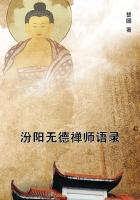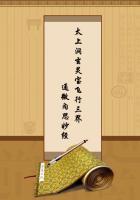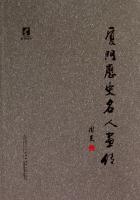This portion of the value of a commodity neither consists of revenue as an independent factor constituting this value-part nor does it resolve itself into revenue. While this new value constantly reproduced by the labourer constitutes a source of revenue for him, his revenue conversely is not a constituent of the new value produced by him. The magnitude of the share paid to him of the new value created by him determines the value-magnitude of his revenue, not vice versa. The fact that this part of the newly created value forms a revenue for him, indicates merely what becomes of it, shows the character of its application, and has no more to do with its formation than with that of any other value. If my receipts are ten shillings a week that changes nothing in the nature of the value of the ten shillings, nor in the magnitude of their value. As in the case of every other commodity so in that of labour-power its value is determined by the amount of this labour is necessary for its reproduction; that the amount of this labour is determined by the value of the labourer's necessary means of subsistence, hence is equal to the labour required for the reproduction of the very conditions of his life -- that is peculiar for this commodity (labour-power), but no more peculiar than the fact that the value of labouring cattle is determined by the value of the means of subsistence necessary for its maintenance, i.e., by the amount of human labour necessary to produce these means of subsistence.
But it is this category of "revenue" which is to blame for all the harmful confusion in Adam Smith. The various kinds of revenue form with him the "component parts" of the annually produced, newly created commodity-value, while, vice versa, the two parts into which this commodity-value resolves itself for the capitalist -- the equivalent of his variable capital advanced in the form of money when purchasing labour, and the other portion of the value, the surplus- value, which likewise belongs to him but did not cost him anything -- form sources of revenue. The equivalent of the variable capital is advanced again for labour-power and to that extent forms a revenue for the labourer in the shape of wages; since the other portion, the surplus-value, does not serve to replace any advance of capital for the capitalist, it may be spent by him in articles of consumption (both necessities and luxuries) or consumed as revenue instead of forming capital-value of any description. Commodity-value itself is the preliminary condition of this revenue and its component parts differ, from the point of view of the capitalist, only to the extent that they constitute either an equivalent for an excess over the variable capital-value advanced by him. Both of them consist of nothing but labour-power expended during the production of commodities, rendered fluent in labour. They consist of outlay, not income or revenue -- of outlay of labour.
In accordance with the quid pro quo , by which the revenue becomes the source of commodity-value instead of the commodity-value being the source of revenue, the value of commodities new has the appearance of being "composed" of the various kinds of revenue; these revenues are determined independently of one another, and the total value of commodities is determined by the addition of the values of these revenues. But now the question is how to determine the value of each of these revenues which are supposed to form commodity-value. In the case of wages it can be done, for wages represent the value of their commodity, labour-power, and this value is determinable (the same as that of all other commodities) by the labour required for the reproduction of this commodity. But surplus-value, or, as Adam Smith has it, its two forms, profit and rent, how are they determined?
Here Adam Smith has but empty phrases to offer. At one time he represents wages and surplus-value (or wages and profit) as component parts of the value, or price, of commodities; at another, and almost in the same breath, as parts into which the price of commodities "resolves it-self"; but this means on the contrary that the commodity-value is the thing given first and that different parts of this given value fall in the form of different revenues to the share of different persons engaged in the productive process.
This is by no means identical with the notion that value is "composed"of these three "component parts." If I determine the lengths of three different straight lines independently, and then form out of these three lines as "component parts" a fourth straight line equal to their sum, it is by no means the same procedure as when I have some given straight line before me and for some purpose divide it, "resolve" it, so to say, into three different parts. In the first case, the length of the line changes throughout with the lengths of the three lines whose sum it is; in the second case, the lengths of the three parts of the line are from the outset limited by the fact that they are parts of a line of given length.















